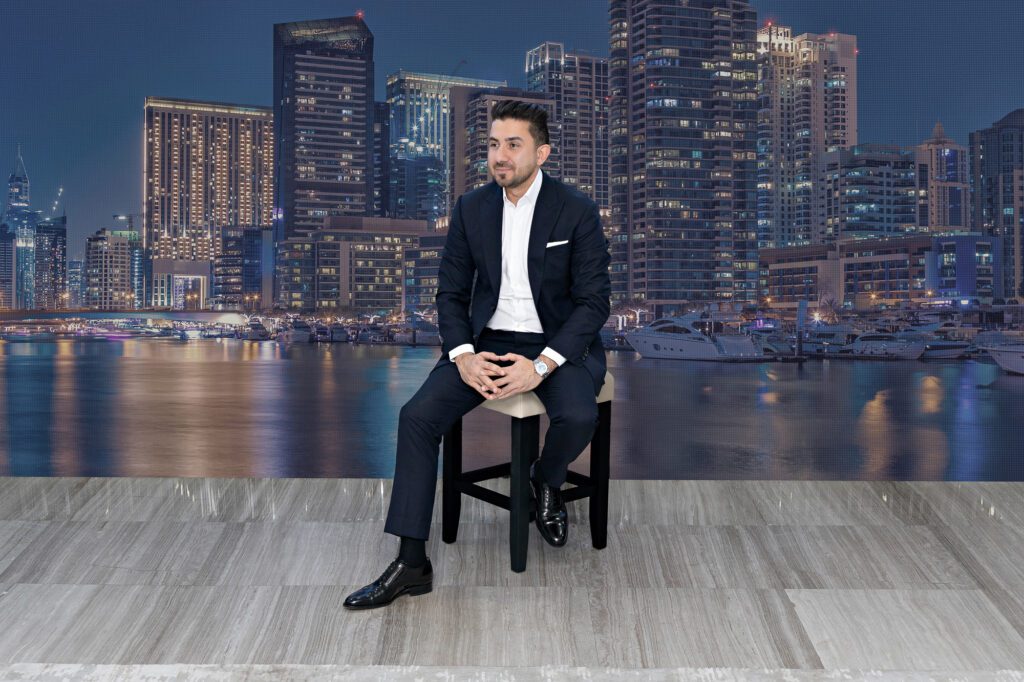The real estate sector in the GCC region is currently experiencing a profound transformation, as it merges local dynamics with global influences. This shift is being driven by advancements in technology, changing demographics, sustainability initiatives, and economic conditions. Notably, residential sales prices in the region have reached unprecedented levels, as reported by the Dubai Land Department, and several factors contribute to this trend. Tapping into my extensive 15-year experience in the luxury real estate industry in the UAE, I would like to highlight the latest trends that are reshaping the GCC real estate market and their significant impact on the industry.
Technological Integration
The GCC region is embracing cutting-edge technology to propel the real estate sector to new heights. Virtual reality (VR) and augmented reality (AR) have ushered in a new era of property viewings, allowing potential buyers and investors to explore properties remotely and immerse themselves in a digital world. Additionally, proptech startups are revolutionizing the market by offering innovative solutions like online property platforms, smart home technologies, and digital transaction systems.
We continuously seek methods to effortlessly incorporate technology into our apartments, transforming them into smart homes. By implementing these minor modifications early in the planning process, we enhance efficiency, transparency, and convenience. Consequently, we redefine the real estate scene in the GCC region, a characteristic that current and future tenants and buyers deeply value.
Sustainable Developments
Sustainability has become the driving force behind the GCC real estate market’s transformation. Governments and developers in the region are wholeheartedly adopting environmentally friendly practices. The demand for energy-efficient buildings, green spaces, and renewable energy solutions is skyrocketing. The global trend towards responsible and sustainable decision-making extends to the real estate sector, warranting its inclusion in this movement.

Drawing from my extensive experience and research on consumer preferences in the real estate industry, it is evident that today’s consumers prioritize making a positive impact through sustainable practices. From green features to eco-friendly infrastructure, developers are rising to meet the growing demand for environmentally conscious properties, setting a new benchmark for sustainability in not just UAE but the entire GCC region.
Urbanization and Mixed-Use Developments
Urbanization is rapidly reshaping the real estate landscape in the GCC region, creating vibrant tapestries of mixed-use developments. These architectural marvels weave together residential, commercial, and recreational spaces, offering residents a delightful live-work-play environment. From walkable neighbourhoods that reduce the need for tiresome commutes to having the amenities to unwind after a long day, consumers today value the little (and big) things a property has to offer such as a swimming pool, a jogging track, a well-designed lobby and so on.
Dynamic Demand and Supply:
Demographic shifts, lifestyle changes, and urbanization patterns are revolutionizing the demand and supply dynamics in the GCC real estate market and it’s important for developers and investors to stay on top of these evolving trends if they want to keep up with the ever-changing preferences of buyers and tenants. The COVID-19 pandemic has accelerated the trend of remote work, driving up demand for properties that cater to the evolving work-from-home lifestyle in affordable yet multifaceted areas such as Dubai Silicon Oasis, JBR, Dubai South and even the upcoming Palm Jebel Ali amongst many others. We’ve noticed a rising demand in people wanting to create a bright and spacious area to work from home to stay productive, sometimes it’s even all about the view that keeps them going.
Pricing Dynamics:
The interplay between supply and demand orchestrates the mesmerizing pricing trends in the GCC real estate market. Limited housing inventory coupled with high demand often leads to price escalations, posing affordability challenges for potential buyers.
An oversupply of properties can naturally result in price declines which can significantly affect profitability of developers and investors. To navigate this situation, real estate professionals must deftly analyse market conditions, skilfully balancing competitive pricing and profitability. There is a notable increase in the demand for affordable apartments that offer comprehensive amenities. We have noticed a growing trends among buyers opting for locations like Jumeirah Village Circle and Dubai South to name a few.
Investment Opportunities:
The GCC real estate market continues to be a magnet for many investors by offering diversification, stable income streams, and the potential for appreciation. We even noticed a rise in international investors actively partaking in cross-border real estate investments, setting the stage for dynamic global market dynamics. However, it’s important to caution and do a thorough due diligence to mitigate risks and make informed investment decisions in an ever-competitive landscape.
Inflation and Interest Rates:
Inflation and interest rates play a pivotal role in shaping the GCC real estate market, impacting the purchasing power of consumers and presenting challenges for prospective property owners. With rising interest rates, borrowing costs increase, making mortgages less accessible for potential homebuyers in the region. These factors often lead to decreased demand and potential market slowdowns. Successful navigation of these challenges has proven to be crucial, with real estate investors and developers closely monitoring and adapting to the changing interest rate environment.
In conclusion, the GCC real estate market is embracing transformative changes driven by technological advancements, sustainability initiatives, urbanization trends, and the allure of foreign investment and tourism. By embracing technology, integrating sustainable practices, and creating mixed-use communities, the real estate industry in the GCC region is redefining modern living. These captivating trends offer unprecedented opportunities for developers, investors, and stakeholders to contribute to the region’s economic growth and establish sustainable, dynamic, and inclusive urban marvels throughout the GCC.




